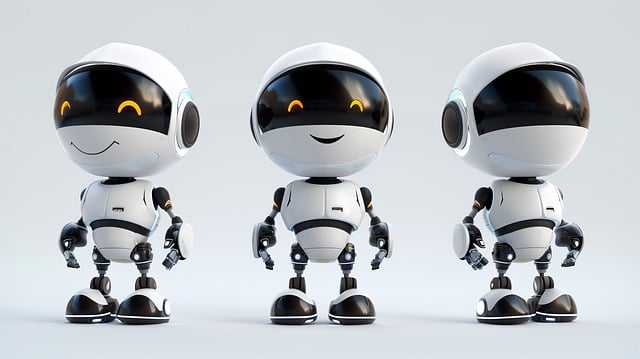Integrating an AI chatbot into a Shopify platform significantly enhances customer service by providing immediate, personalized support through natural language interactions. These chatbots efficiently handle common queries, guide customers through purchases, and offer predictive analytics and product recommendations based on customer data, which can increase conversion rates and improve the overall shopping experience. They are designed to learn and adapt over time using machine learning, ensuring their responses stay relevant to changing consumer needs and maintaining high service standards. AI chatbots are available 24/7, offering consistent service that contributes to higher retention rates and a stronger brand reputation for customer care. Shopify businesses can expect improved customer engagement, satisfaction, and sales through the use of AI chatbots, which require careful selection, customization, and ongoing monitoring to ensure they align with brand identity and adapt to business dynamics and consumer trends. This integration is part of Shopify's commitment to leveraging artificial intelligence for better customer service and a more innovative e-commerce platform.
navigate the digital marketplace, Shopify merchants are harnessing the power of AI chatbots to revolutionize customer service. This article delves into the transformative role of AI chatbots for Shopify and how they can be seamlessly integrated into your online store. We’ll explore strategies for personalizing these intelligent bots to enhance user engagement, analyze their impact on sales and user experience, and glimpse into the future where AI chatbots are poised to shape the trajectory of e-commerce on Shopify platforms.
- Leveraging AI Chatbots for Enhanced Shopify Customer Service
- Integrating AI Chatbots into Your Shopify Store: A Step-by-Step Guide
- Customizing Your Shopify AI Chatbot: Personalization Techniques and Strategies
- Measuring the Impact of AI Chatbots on Sales and User Experience in Shopify Stores
- Future of E-commerce: The Role of AI Chatbots in Shopify's Evolution
Leveraging AI Chatbots for Enhanced Shopify Customer Service

Integrating an AI chatbot into a Shopify store can significantly elevate the customer service experience. These sophisticated systems are designed to understand and process natural language, enabling them to interact with customers in a manner that feels both intuitive and personalized. By leveraging AI chatbots for Shopify, businesses can provide instant support, answering frequently asked questions and guiding users through their shopping journey seamlessly. This not only enhances customer satisfaction by offering immediate assistance but also allows human agents to focus on more complex tasks, thereby optimizing resource allocation. The AI chatbot for Shopify can learn from each interaction, continuously improving its responses and efficacy over time. This adaptability ensures that as consumer inquiries evolve, the chatbot remains an effective tool for maintaining high service standards without compromising on the quality of the customer experience.
Furthermore, AI chatbots for Shopify are equipped with advanced features such as predictive analytics and personalized recommendations, which can be leveraged to tailor interactions according to individual customer preferences. These bots can analyze past behavior and purchase history to offer products that align with the user’s interests, thereby increasing the likelihood of conversion and fostering a more engaging shopping environment. Additionally, by handling routine inquiries and transactions around the clock, AI chatbots for Shopify ensure that customer service is consistent and reliable, regardless of the time of day or the volume of queries. This level of availability and attentiveness can lead to higher customer retention rates and contribute to a stronger brand reputation.
Integrating AI Chatbots into Your Shopify Store: A Step-by-Step Guide

Incorporating an AI chatbot into your Shopify store can significantly enhance customer engagement and streamline support operations. To begin, assess the specific needs of your customer service and the type of interactions a chatbot will handle. Select a chatbot platform that integrates seamlessly with Shopify, ensuring compatibility with your existing store setup. Typically, this involves choosing from a range of AI chatbot for Shopify services offered by third-party providers like Dialogflow, IBM Watson, or Gorgias. Once you’ve chosen a provider, utilize their integration tools to embed the chatbot directly into your Shopify site. This process often includes installing a plugin or widget that allows the chatbot to communicate with your store’s backend and customer interface.
After integration, customize the chatbot’s responses and capabilities to match your brand’s voice and the products you sell. Program the chatbot to answer frequently asked questions, guide users through the purchasing process, and provide real-time assistance with order tracking or product inquiries. Regularly update the chatbot’s database with new information about your products and services to ensure accuracy and effectiveness. Additionally, set up monitoring systems to track the chatbot’s performance, making adjustments as necessary based on customer feedback and interaction analytics. By following these steps, you can effectively implement an AI chatbot for Shopify that not only improves the shopping experience but also drives sales and enhances customer satisfaction. Regularly review and refine the chatbot’s script to keep it aligned with your evolving business needs and market trends.
Customizing Your Shopify AI Chatbot: Personalization Techniques and Strategies

Incorporating an AI chatbot into your Shopify store can significantly enhance customer engagement and satisfaction, leading to improved conversion rates and sales. Customizing your AI chatbot for Shopify involves a strategic blend of understanding your customer base and leveraging AI capabilities to deliver personalized interactions. By integrating natural language processing (NLP) and machine learning algorithms, these chatbots can understand and respond to customer inquiries with remarkable accuracy. Personalization techniques include setting up the chatbot to recognize returning customers based on their browsing history or previous interactions. This recognition allows the chatbot to tailor its responses and recommendations, creating a more individualized shopping experience. Strategies such as implementing dynamic scripts that adapt to user behavior over time ensure that the chatbot evolves with your customer’s preferences, offering products and solutions that are most relevant to them. Additionally, by integrating customer data with the chatbot’s AI, retailers can provide contextually appropriate assistance, whether it’s guiding a shopper through the checkout process or helping them find the perfect product based on their past purchases and browsing patterns. Tailoring the chatbot’s responses not only streamlines the shopping experience but also builds customer loyalty and trust in your brand, setting the stage for repeat business and positive word-of-mouth referrals. Retailers who invest in customizing their Shopify AI chatbot can differentiate themselves from competitors by providing a unique, personalized shopping journey that resonates with modern consumers’ expectations for seamless and engaging online experiences.
Measuring the Impact of AI Chatbots on Sales and User Experience in Shopify Stores

Implementing an AI chatbot within a Shopify store can significantly influence both sales and user experience. To accurately measure its impact, businesses must track key performance indicators (KPIs) that reflect customer engagement and conversion rates. The integration of an AI chatbot for Shopify allows for real-time interaction with customers, addressing queries and providing recommendations instantly. This immediate support can lead to a reduction in cart abandonment as customers’ questions are answered promptly, potentially increasing sales by ensuring a smoother path to purchase. Additionally, by analyzing customer interactions, these AI systems can identify patterns and preferences, enabling personalized shopping experiences that cater to individual needs. This level of customization often enhances user satisfaction, fostering loyalty and repeat business. Analyzing metrics such as average handle time, customer satisfaction scores, and the frequency of repeat visits can offer insights into the effectiveness of the chatbot in improving overall user experience and contributing to revenue growth. By continuously monitoring these aspects and fine-tuning the chatbot’s responses and capabilities based on collected data, Shopify store owners can optimize their AI tool to maximize its positive impact on sales and customer satisfaction.
Future of E-commerce: The Role of AI Chatbots in Shopify's Evolution

As e-commerce continues to evolve at a rapid pace, artificial intelligence chatbots have emerged as transformative tools within the Shopify ecosystem. These AI chatbots for Shopify are not mere customer service aids but integral components shaping the future of online retail. They offer personalized shopping experiences by engaging with customers in real-time, providing instant assistance, and even predicting consumer needs through advanced data analysis. This proactive approach to customer interaction enhances user satisfaction, fosters loyalty, and drives sales conversions. Furthermore, these chatbots are adept at handling a multitude of tasks, from answering frequently asked questions to guiding users through complex purchase processes, freeing up human resources for more nuanced and strategic activities. As machine learning algorithms improve, Shopify store owners can expect these AI-powered assistants to become even more intuitive and efficient, further streamlining operations and enriching the online shopping experience.
The integration of AI chatbots into Shopify’s platform represents a significant step towards a future where e-commerce is seamlessly interwoven with intelligent automation. These chatbots are being trained to understand and interpret an array of customer queries, making them indispensable for providing consistent, high-quality support across various time zones and languages. As they continue to learn from interactions, their effectiveness in understanding context and delivering relevant responses is expected to increase significantly. This learning capability means that Shopify stores can expect their AI chatbots to become more refined over time, offering an increasingly sophisticated layer of customer service and engagement. The role of these chatbots in Shopify’s evolution underscores a commitment to innovation and excellence in the digital marketplace.
In conclusion, integrating an AI chatbot into a Shopify store represents a strategic investment for any e-commerce business aiming to elevate its customer service and user experience. This article has outlined the key steps to personalize your Shopify AI chatbot effectively, demonstrated the tangible benefits of such technology on sales metrics, and provided a glimpse into how AI chatbots are set to redefine the future of online retail. As Shopify continues to expand its capabilities, AI chatbots will become increasingly sophisticated, offering seamless interactions that rival face-to-face shopping. For businesses looking to stay competitive in the digital marketplace, harnessing the power of AI chatbot technology for Shopify is not just an option—it’s a necessity.
